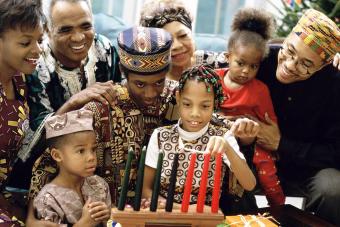
Making sure to provide a children's dictionary to your kids will go a long way toward helping them with essential literary and research skills. You may have a family dictionary in your home, but reference books tailored to children are easier for them to use and understand.
Dictionaries for Kids
How does a children's dictionary differ from a general dictionary? In many cases, dictionaries made for kids offer:
- More illustrations: In regular dictionaries, you'll find pictures here and there, but a child's dictionary will probably feature many more illustrations to help them grasp definitions.
- Fewer entries: A standard dictionary may have tens of thousands of words and definitions, including obscure entries that few people are familiar with. A children's dictionary will usually contain fewer entries and will focus on terms that kids use often.
- Other kid-friendly features: Other features you're likely to find in a children's dictionary are pronunciation guides tailored to the younger set, word histories, sample sentences, and synonym and antonym examples.
Helping Kids Use a Dictionary
Although many children today may do a lot of their research and reports via online information, they can still get a lot out of using traditional reference books like dictionaries and encyclopedias. Parents can help by pointing kids to a dictionary every time they ask what a word means or how it's pronounced. This encourages independent study and research, which will become more important as a child advances in school. You can show your child how to find words alphabetically and how to use different features, such as pronunciation guides.
The Perfect Children's Dictionary for Your Child
Popular names in the reference world like Webster's and Scholastic don't forget about the younger set when they publish their useful books, so finding a children's dictionary from a trusted source is relatively easy. These are some dictionaries tailored for kids that parents can feel comfortable stocking a bookshelf with:
- At under $15.00, the Merriam-Webster Children's Dictionary in hardback is a great deal. Suitable for children ages 9 to 12, this dictionary includes world maps, flags from around the world and tons of clear illustrations.
- The Scholastic Children's Dictionary will help kids ages 8 to 12 find definitions as well as facts about the 50 U.S. states, the Braille alphabet and a list of American presidents.
- My First Dictionary is perfect for children ages 4 and up. It contains 1,000 words that are commonly used by very young kids. Helpful color codes organize entries on each page. Full-color photographs, drawings and word games make this reference book appealing to the youngest students.
- The Scholastic Dictionary of Spelling can help a child improve his spelling skills by giving directions on finding words they don't know how to spell, as well as memory tricks to aid in learning to spell commonly misspelled words.
Online Dictionaries for Kids
- One online dictionary option is Yahoo!'s offering of the American Heritage Dictionary by Houghton Mifflin. Kids can type in a word and the dictionary often gives back several choices, including related entries.
- Wordsmyth allows users to browse based on beginner, children or advanced levels. It also features an anagram solver and crossword solver.
- Merriam-Webster's Word Central provides a dictionary, thesaurus and a rhyming option for children. Kids can also play a small selection of games and build their own dictionaries tailored to their particular tastes.
Essential Bookshelf Material
It's incredibly useful to have reference books such as dictionaries, thesauruses and encyclopedias in your home, but providing kids with these resources made just for them is even more helpful. They can comprehend the child-friendly formats more easily and feel more independent looking up information and definitions on their own. Honing their research skills early will only help them the older they get.







